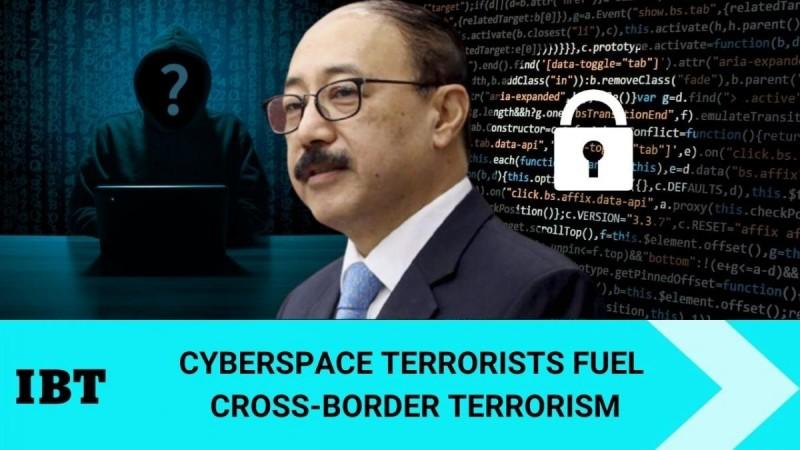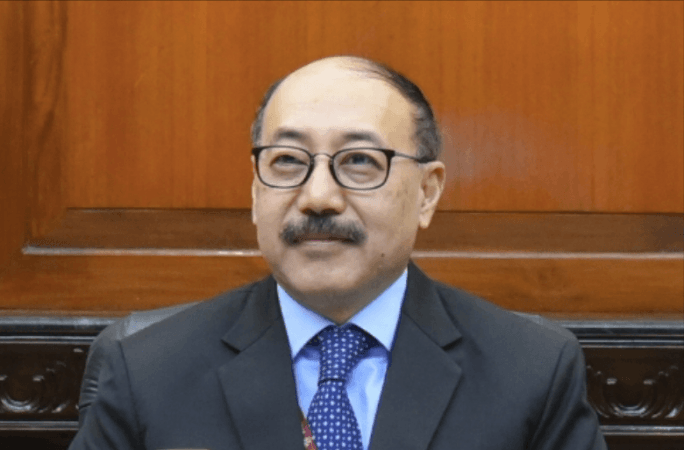As India is fighting the battle on many fronts against terrorists, cyberspace terrorists pose an imminent threat. Speaking at the United Nations Security Council (UNSC) on Tuesday, Foreign Secretary Harshvardhan Shringla highlighted the concerns regarding State and non-state actors using their cyberspace expertise to fuel cross-border terrorism. Shringla said they are manipulating ICT (Information and Communications Technology) products.
"Some States are leveraging their expertise in cyberspace to achieve their political and security-related objectives and indulge in contemporary forms of cross-border terrorism," said Shringla, as he was addressing the UNSC debate on "Maintenance of International Peace and Security: Cyber Security." He also used the platform to list down the challenges for Internet networks worldwide.

The threat of cyberspace
With the advent of cyber and information communication technologies, there have been both good and bad outcomes. On one hand, increasing use of cyberspace has bolstered economic development, social awareness and improved service delivery to citizens. In the face of COVID-19, this reliance on cyberspace has only accelerated.
Shringla then moved on to point out the challenges. He sounded the alarm on the fact that some States, without naming any specific countries, are leveraging their cyberspace expertise to achieve their political and security-related objectives and further indulge in contemporary forms of cross-border terrorism. Of late, India has witnessed a sharp spike in the number of cyberattacks since the border tensions with China escalated. Nefarious Chinese groups have been linked to several cyberattacks in India.
Recently, Recorded Future, the world's largest provider of intelligence for enterprise security, on Thursday, revealed cyber espionage activity attributed to a suspected Chinese state-sponsored threat activity group, named RedFoxtrot by Recorded Future's threat research arm Insikt Group. Recorded Future's large-scale, automated network traffic analytics and expert analysis detected intrusions targeting sectors across bordering Asian countries.
![[Representational image] Ransomware](https://data1.ibtimes.co.in/en/full/652897/ransomware.jpg?h=450&l=50&t=40)
The cyberspace terrorists have used sophisticated tools to compromise State security by attacking crucial infrastructures, such as health and energy facilities. These actors are using their expertise to spread "virulent propaganda, incite hatred and violence, recruit youth and raise funds," Shringla pointed out. Like India, this is seen as a global problem.
"Terrorists have also used social media for planning and executing their terror attacks and wreaking havoc. As a victim of terrorism, India has always underlined the need for Member States to address and tackle the implications of terrorist exploitation of the cyber domain more strategically," he said.
He further pointed out the actions of a few States undermine the trust and confidence in global ICT supply chains, creating potential flashpoints between States. Secretly introducing vulnerabilities and harmful functions like backdoor access in ICT networks and products are concerns that need immediate attention.
Solution to a crucial problem
Shringla proposed a solution to curb the influence of bad actors in cyberspace. He said the Member States need to adopt a collaborative rules-based approach in cyberspace and work towards ensuring its openness, stability and security, which ensure collective cybersecurity through international cooperation achievable by multi-stakeholder involvement.

"Fostering equitable access to cyberspace and its benefits should also form an important component of this international co-operation. The widening "Digital gaps" and "Digital knowledge gaps" amongst countries create an unsustainable environment in the cyber domain," he explained.
Shringla's comments come a day after IISS report had claimed India's cybersecurity capabilities were weak and graded India as a "third-tier" cyber-power. But Shringla echoed India's commitment to an open, secure, free, accessible and stable cyberspace environment, which will become an engine for innovation, economic growth, sustainable development, ensure free flow of information and respect cultural and linguistic diversity.

















